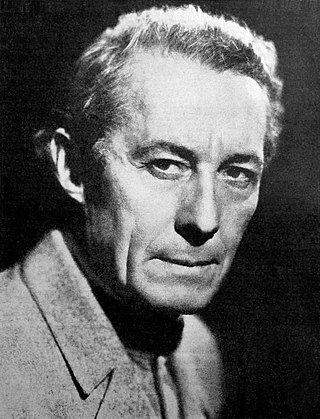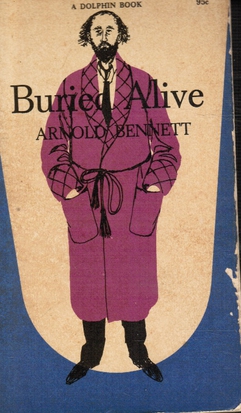
Broken Blossoms or The Yellow Man and the Girl, often referred to simply as Broken Blossoms, is a 1919 American silent drama film directed by D. W. Griffith. It was distributed by United Artists and premiered on May 13, 1919. It stars Lillian Gish, Richard Barthelmess, and Donald Crisp, and tells the story of young girl, Lucy Burrows, who is abused by her alcoholic prizefighting father, Battling Burrows, and meets Cheng Huan, a kind-hearted Chinese man who falls in love with her. It was the first film distributed by United Artists. It is based on Thomas Burke's short story "The Chink and the Child" from the 1916 collection Limehouse Nights. In 1996, Broken Blossoms was included in the annual selection of 25 motion pictures to be added to the National Film Registry of the Library of Congress.

The Wind is a 1928 American synchronized sound romantic drama film directed by Victor Sjöström. While the film has no audible dialog, it was released with a synchronized musical score with sound effects using both the sound-on-disc and sound-on-film process. The movie was adapted by Frances Marion from the 1925 novel of the same name written by Dorothy Scarborough. Featuring Lillian Gish, Lars Hanson and Montagu Love, it is one of the last films released by Metro-Goldwyn-Mayer without audible dialogue and is considered to be among the greatest "silent" films.

Lillian Diana Gish was an American actress. Her film-acting career spanned 75 years, from 1912, in silent film shorts, to 1987. Gish was dubbed the "First Lady of the Screen" by Vanity Fair in 1927 and is credited with pioneering fundamental film performance techniques. In 1999, the American Film Institute ranked Gish as the 17th-greatest female movie star of Classic Hollywood cinema.

Dorothy Elizabeth Gish was an American stage and screen actress. Dorothy and her older sister Lillian Gish were major movie stars of the silent era. Dorothy also had great success on the stage, and was inducted into the American Theater Hall of Fame. Dorothy Gish was noted as a fine comedian, and many of her films were comedies.

Warning Shot is a 1967 American crime-thriller film directed and produced by Buzz Kulik and starring David Janssen, Joan Collins, Keenan Wynn, Ed Begley, Stefanie Powers, Sam Wanamaker, George Grizzard, Carroll O'Connor, Steve Allen, Eleanor Parker, Walter Pidgeon, George Sanders and Lillian Gish. The screenplay concerns a police sergeant who kills a man while on a stakeout, then must prove that it was self-defense. The screenplay by Mann Rubin was based on the 1965 novel 711 - Officer Needs Help by Whit Masterson.

Robert Emmett Harron was an American motion picture actor of the early silent film era. Although he acted in over 200 films, he is possibly best recalled for his roles in the D.W. Griffith directed films The Birth of a Nation (1915) and Intolerance (1916).

Henry Brazeale Walthall was an American stage and film actor. He appeared as the Little Colonel in D. W. Griffith's The Birth of a Nation (1915).

Buried Alive is a 1908 comedy novel by the British writer Arnold Bennett. In 1913 Bennett adapted it as a play The Great Adventure. This later provided the basis for the 1968 musical Darling of the Day.

Holy Matrimony is a 1943 comedy film directed by John M. Stahl and released by 20th Century Fox. The screenplay was based on the 1908 novel Buried Alive by Arnold Bennett. It stars Monty Woolley and Gracie Fields, with Laird Cregar, Una O'Connor, Alan Mowbray, Franklin Pangborn, Eric Blore, and George Zucco in supporting roles.

The Valet is a 2006 French-language comedy film written and directed by Francis Veber and starring Gad Elmaleh, Alice Taglioni, Daniel Auteuil and Kristin Scott Thomas. The film is about a parking valet who is enlisted to pretend to be the lover of a famous fashion model in order to deflect attention from her relationship with a married businessman. The film enjoyed box office success in France and the United States.

The Painted Lady is a 1912 American short drama film directed by D. W. Griffith and starring Blanche Sweet. A print of the film survives.
La Bohème is a 1926 American silent drama film directed by King Vidor, based on the 1896 opera La bohème by Giacomo Puccini. Lillian Gish and John Gilbert star in a tragic romance in which a tubercular seamstress sacrifices her life so that her lover, a bohemian playwright, might pen his masterpiece. Gish, at the height of her influence with Metro-Goldwyn-Mayer studios, asserted significant control over the production, determining the story, director, cast, cinematography, and costume design. In February 2020, the film was shown at the 70th Berlin International Film Festival, as part of a retrospective dedicated to King Vidor's career.

The House of Darkness is a 1913 American short drama film directed by D. W. Griffith.

The Mothering Heart is a 1913 American short drama film directed by D. W. Griffith. A print of the film survives in the film archive of the Museum of Modern Art.

The Great Love is a 1918 American silent war drama film directed and written by D. W. Griffith who, along with scenario writer Stanner E.V. Taylor, is credited as "Captain Victor Marier". The film stars George Fawcett and Lillian Gish. Set during World War I, exterior scenes were shot on location in England. The Great Love is now considered to be a lost film.

The Greatest Thing in Life is a 1918 American silent drama film about World War I, directed by D. W. Griffith and starring Lillian Gish, Robert Harron, and David Butler. The film is now considered lost as no prints are known to exist.

True Heart Susie is a 1919 American drama film directed by D. W. Griffith and starring Lillian Gish. A print of the film survives in the film archive of the British Film Institute. The film has seen several VHS releases as well as a DVD issue.

The White Sister is a 1923 American silent drama film starring Lillian Gish and Ronald Colman, directed by Henry King, and belatedly released by Metro Pictures. It was based on the 1909 play of the same name by Francis Marion Crawford and Walter C. Hackett. It is the second of four adaptations of the play, preceded by a 1915 production and followed by a 1933 sound film, starring Helen Hayes and Clark Gable, and a 1960 Mexican production.

Remodeling Her Husband is a 1920 American silent comedy film that marked the only time Lillian Gish directed a film.

The Great Adventure is a 1921 American silent romantic comedy film produced by Whitman Bennett and distributed by First National Pictures, then called Associated First National. The film was directed by Kenneth Webb and starred Lionel Barrymore. Fredric March made his screen debut in this film. The film is based upon the 1908 novel Buried Alive by Arnold Bennett. It was remade in 1933 as His Double Life starring Lillian Gish. The Great Adventure is a surviving feature film held by the Library of Congress.



















